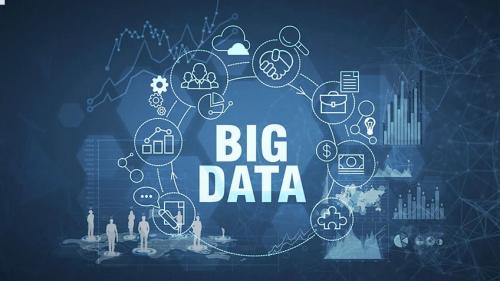
The Indian economy is witnessing a sea of transformational changes when it comes to technology and its adoption. The Prime Minister’s visionary projects such as Digital India, e-governance, and Smart cities among several others are destined to make India a technology-centric economy of the future. With this as the background, it is needless to say that the Internet of Things (IoT) and Big Data will play an extremely crucial role in paving the next level of growth.
The Big Data Analytics market in India is currently valued at $2 Billion and is expected to grow at a CAGR of 26 percent reaching approximately $16 Billion by 2025, making India’s share approximately 32 percent in the overall global market. The IoT market shows a similar growth trajectory and is forecasted to reach $15 Billion by 2020 accounting for roughly five percent of the global market. This nearly eight-fold jump in the Indian Big Data market is a lucrative opportunity and should be tapped. India is currently among the top 10 countries in the Big Data analytics market and already has around 600 data analytics firms with this number only expected to grow in the future. This is a good opportunity to learn Big Data from providers like big data certification in Delhi, which helps you be in a trend and get the highest paid jobs.
Amongst the several factors driving this exponential rise of the Indian analytics industry is the growing data generation at an individual level. India with its burgeoning population of more than a Billion, Internet users in excess of 400 million, and Smartphone user base of around 300 million is deemed to generate massive data, making each click an important information point that can be processed using Big Data tools to reveal user behavior and come up with useful and profitable decisions.
The growth in the Internet-enabled devices and thereby data generation is only expected to grow in the future given its easy accessibility, low-cost, ease of use, and overall economic growth of the country. An example of this is the recent 4G data wave that was created with the entrance of low-cost telecom carriers. It enabled the low-income Indian population to join the digital bandwagon, allowing a larger chunk of data to be captured, giving a better understanding of customers to businesses and government programs.
Another major driving force is the Governments push towards digitization with initiatives like Digital India that aims to transform the country into a digitally empowered society and the National Optical Fiber Network (NOFN) initiative that aims to connect villages with optical fiber and provide high-speed internet connectivity. The length & breadth of the country being digitally connected potentially gives rise to phenomenal data consumption and provides a major impetus to the Big Data analytics industry.
Big data tutorial will help you to know from the basics to advance.
The recent Demonetization in India has brought about an attitudinal shift in the minds of the Indian people with more individuals now migrating towards digital payment mediums and this increasing digitization of transactions is a positively correlating factor for the Big Data Analytics demand in the country. In addition, there is also the government’s unique identification project which aims to provide a unique digital identity- an AADHAR number to each of its citizens for efficient delivery of services. Linking of the AADHAR to various services like finance, healthcare, etc. is expected to create a gigantic pool of data that would require Big Data analytics to convert the raw data into meaningful information and facilitate analysis.
In response to the globally increasing demand for Big Data analytics, NEC Corporation and NEC Technologies India recently launched the Center of Excellence for Analytics Platform & Solutions in India, with a plan to organize a team of 100 professionals within the first few years. The new organization will act as a ‘one-stop-shop’ for customers who want to utilize Big Data analytics as well as simplify their digital transformation journey, enabling them to make well-informed decisions at the right time.



Comments